2025 Alumni Awards
The Change-Makers
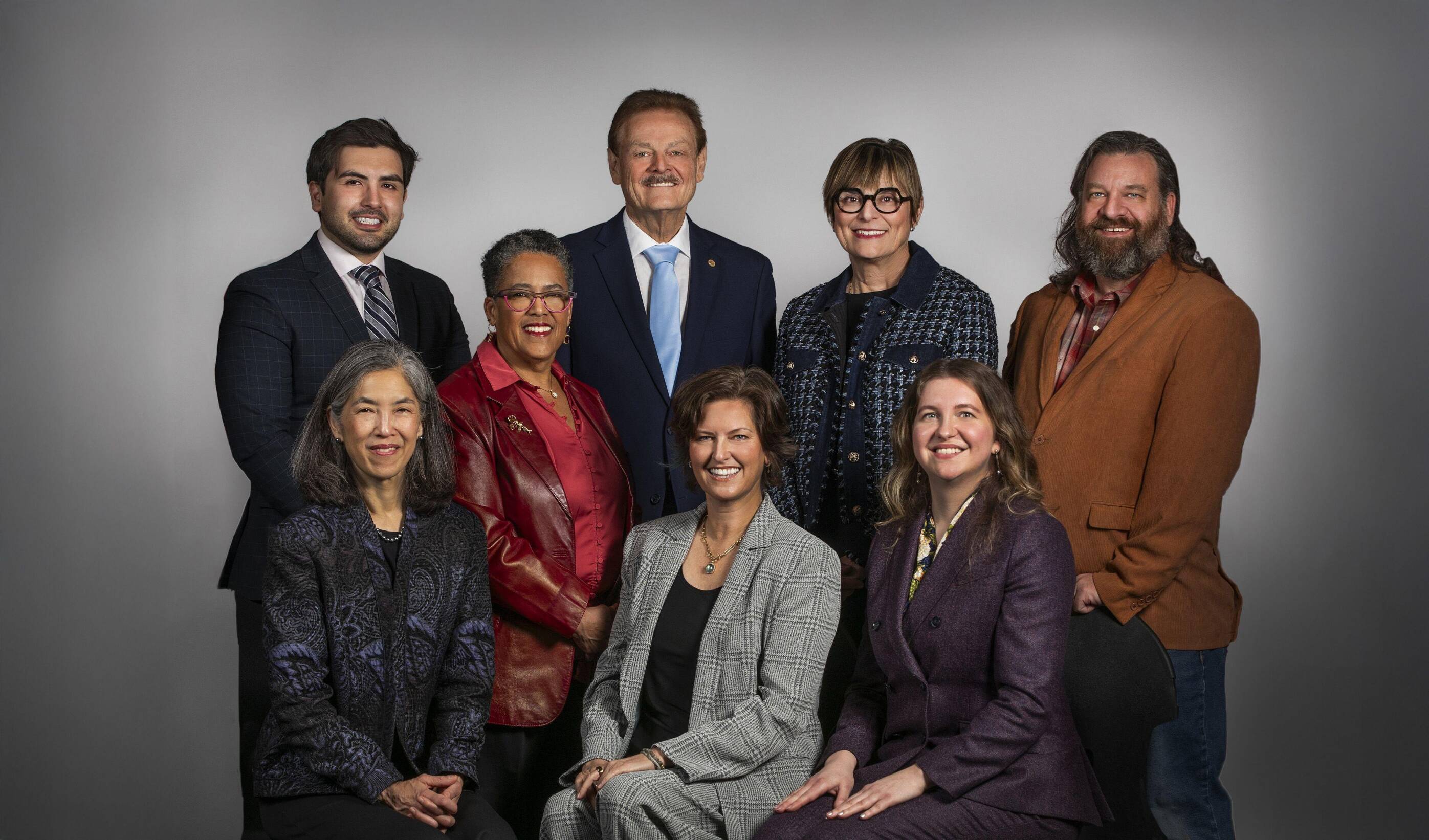
Each year, the University of Illinois Chicago Alumni Association celebrates our extraordinary alumni. These individuals have undoubtedly achieved success in their respective fields; more importantly, they have created opportunities and meaningful change in their cities and regions. Each of these alumni represents different disciplines — urban planning, public health, education, arts, medicine, communications, health care and dentistry — but what connects them is their dedication and drive to make healthier, more equitable and more inclusive communities. These humanitarians, achievers and rising stars embody their alma mater’s commitment to service and inspire all of us to be agents of social change.
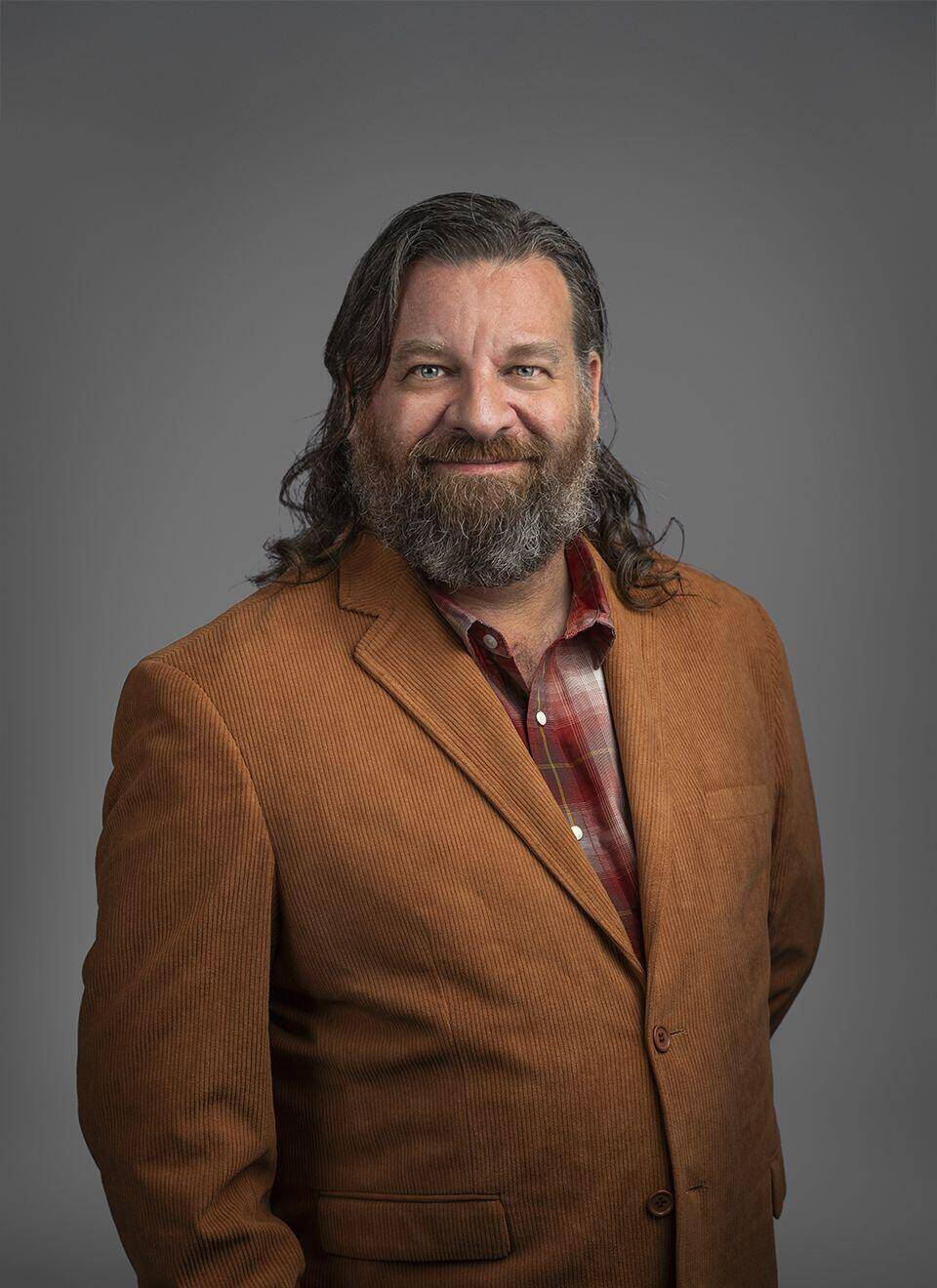
Founder, Revolution Brewing
College of Urban and Public Policy MUPP ‘05
Joshua Deth
Alumni Achievement Award
For Josh Deth, the practices of brewing beer and urban planning intersect at building community.
Before he founded Revolution Brewing, Deth earned a master’s degree in urban planning and policy at UIC. Craft brewing was always his passion, but he also had a strong interest in community activism and advocacy work, namely around more connected, less car-centered neighborhoods. He joined the Master of Urban Planning and Policy program and worked with the late Janet Smith, a professor of urban and public policy, to revive an old proposal to turn three miles of abandoned train tracks into a public space that connected Chicago neighborhoods. Smith stressed the importance of directly involving neighbors and community members in any urban planning project.
“Janet was a great listener of direct constituents and what people want in their neighborhoods,” Deth says.
For his thesis project, Deth co-founded the Friends of the Bloomingdale Trail (FBT), a community-driven association that garnered neighborhood support for the new public greenway and grew to 1,000 members. The FBT held community meetings, centered residents’ voices during the design and development planning and organized clean-up days. Twenty years later, the 606 trail and parks network has become the backbone that connects the Logan Square, Humboldt Park and West Town communities, fostering recreation and connectivity on the northwest side.
Deth continued brewing beer and dreaming up other ways to bring together Chicagoans. While at UIC, he opened up the Handlebar restaurant, which became a hub for cycling activists and a community staple in Wicker Park. Then, in 2010, he built Revolution Brewing, which helped kickstart the Chicago craft beer movement.
“I used all my urban planning skills when opening that business,” Deth says. “And I was meeting a need because the community didn’t have enough choices with beer.”
Revolution’s recently closed brewpub in Logan Square spurred community development along Milwaukee Avenue, and today Revolution is the largest independent craft brewery in Illinois. As an entrepreneur, Deth uses his platform to advocate for local community groups and organizations. He donates the brewery space to host fundraising events for causes such as housing for the homeless, ecological preservation and bike advocacy; mentors upcoming brewers and promotes community-building through home brewing; and helps new small businesses find their footing in the city.
“To create space for community, it’s very important to keep open the pathways in,” Deth says. “Especially if you believe in welcoming people.”
President and CEO, Joyce Foundation
College of Medicine MD ’90
Dr. Julie Morita
Alumni Achievement Award
“Safety, feeling welcome, and opportunity…these are essential ingredients for health.”
For Dr. Julie Morita, these factors should exist in every person’s life — not as a privilege, but as a right.
Morita has worked for more than 30 years to dismantle social barriers to health. She was deeply influenced by the experience of her parents, who were detained in a Japanese American internment camp during World War II. She grew up with stories of unjust treatment and the state-sanctioned racism her parents and thousands of others endured. Her family history is one source of inspiration in her pursuit for health equity; another is her time at UIC.
As a student at the College of Medicine, Morita gained valuable exposure to the diverse communities around Chicago through her clinical rotations.
“The patient populations that we cared for were all people of color and generally people who lacked access to resources,” Morita recalls. “Like many American communities, Chicago is segregated in a way that provides abundant opportunities for some and barriers that make it harder to be healthy for others.”
After a stint as a pediatrician, Morita pivoted into public health — working on vaccine-preventable diseases at the Centers for Disease Control and Prevention and then joining the Chicago Department of Public Health (CDPH). She ended her 20-year career there as commissioner, overseeing public health for 2.7 million residents. During her tenure, Morita managed large-scale health responses to H1N1, Ebola and meningitis outbreaks; increased HPV vaccination rates among teenagers; led efforts to reduce youth access to tobacco and nicotine; doubled investment in opioid use prevention and treatment; addressed the racial gap in vaccination rates; and launched “Healthy Chicago 2.0,” a four-year plan focused on achieving health equity and eliminating systemic barriers to health.
The UIC alumna then moved into the nonprofit world, leading grantmaking at the Robert Wood Johnson Foundation for five years in its mission to make health a right. Today, Morita is the President and CEO of the Joyce Foundation, an organization that supports policies and other strategies that promote racial equity and economic mobility in the Great Lakes region. Her work there is a culmination of her decades-long dedication to creating healthier communities.
“We prioritize education, environment, democracy, culture, journalism, and gun violence prevention and justice reform,” she says. “There’s a direct connection from those issues to health and well-being — system-level changes in these areas will improve people’s health and well-being.”
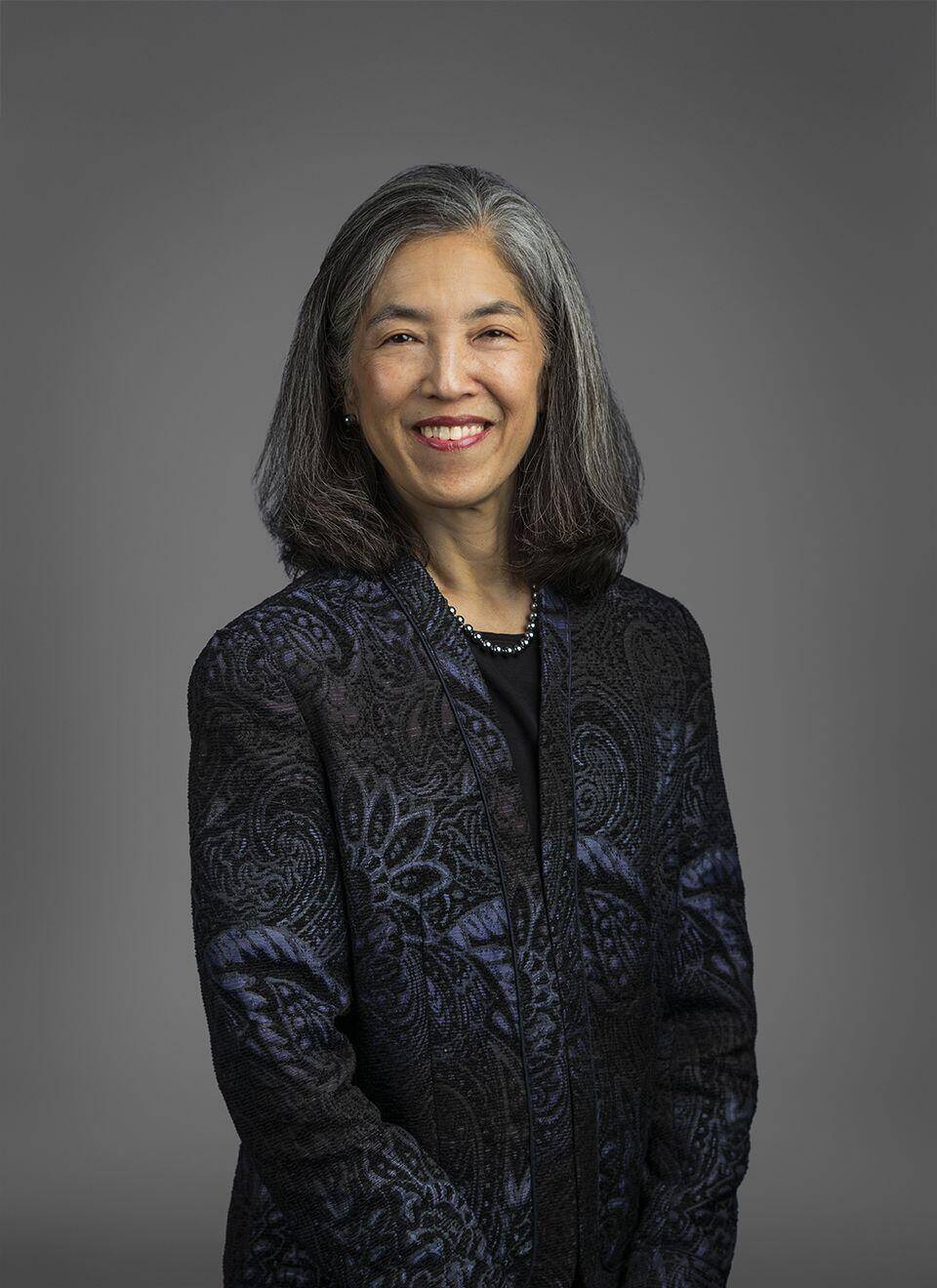
CEO, Kenneth Rainin Foundation
College of Education PhD ’02
Jennifer Rainin
Alumni Achievement Award
Storytelling is at the core of Jen Rainin’s work. For the UIC alumna, stories matter — and whose stories are told matters even more. The plot to her story as a teacher, philanthropist, filmmaker and LGBTQ+ activist is giving voice to those who are not represented in the dominant narrative.
“My personal mission is to build visibility…and positive representation,” She says. “I want to eliminate the shame and injustice that comes from not being able to access knowledge.”
Rainin’s early career as a special education teacher and literacy specialist shaped her passion for storytelling. But the struggles she saw with young children learning how to read led her to UIC’s College of Education. While pursuing her PhD, she worked with the Center for Literacy at UIC, which provides family literacy and adult education services to Chicago’s South and West Side communities. This experience greatly contributed to Rainin’s dissertation research — a better understanding of how to prepare teachers to be more effective early literacy instructors and how to center parents, caregivers and community members in that education.
In the next chapter of her story, the UIC alumna stepped in as the head of the Kenneth Rainin Foundation after her father passed away. With a focus on arts, health and education, the Bay Area-based foundation has launched programs to strengthen early literacy in Oakland, California, and to support early childhood teachers, especially minority educators — providing children with the stories and storytellers that matter to them.
A filmmaker and proponent of the arts, Rainin has also invested in initiatives to uplift artists’ voices. Through the Community Arts Stabilization Trust, the foundation works to secure affordable spaces for artists in the Bay Area, and with the Rainin Filmmaking Grants in partnership with SF Film, the foundation supports independent feature films that address social justice issues.
“I really do see a strong through-line from my work giving young children and their families the ability to read stories, and the foundation work that ensures that educators and artists are set up to tell those stories that need to be told…to give voice to underrepresented groups,” she says.
In her own work as a filmmaker, Rainin champions stories about lesbian, bisexual, queer and transgender culture, bringing LGBTQ+ voices, achievements and struggles into awareness. The Curve Foundation, which Rainin founded with her wife, supports journalists, produces dozens of intersectional and multi-generational events, and is the U.S. host for Lesbian Visibility Week, elevating and celebrating lesbian culture across the country each April.
At a time when LGBTQ+ rights are targeted and diversity, equity and inclusion is being rolled back, Rainin’s storytelling is critically important and demonstrates an embodiment of UIC’s mission to inspire social change.
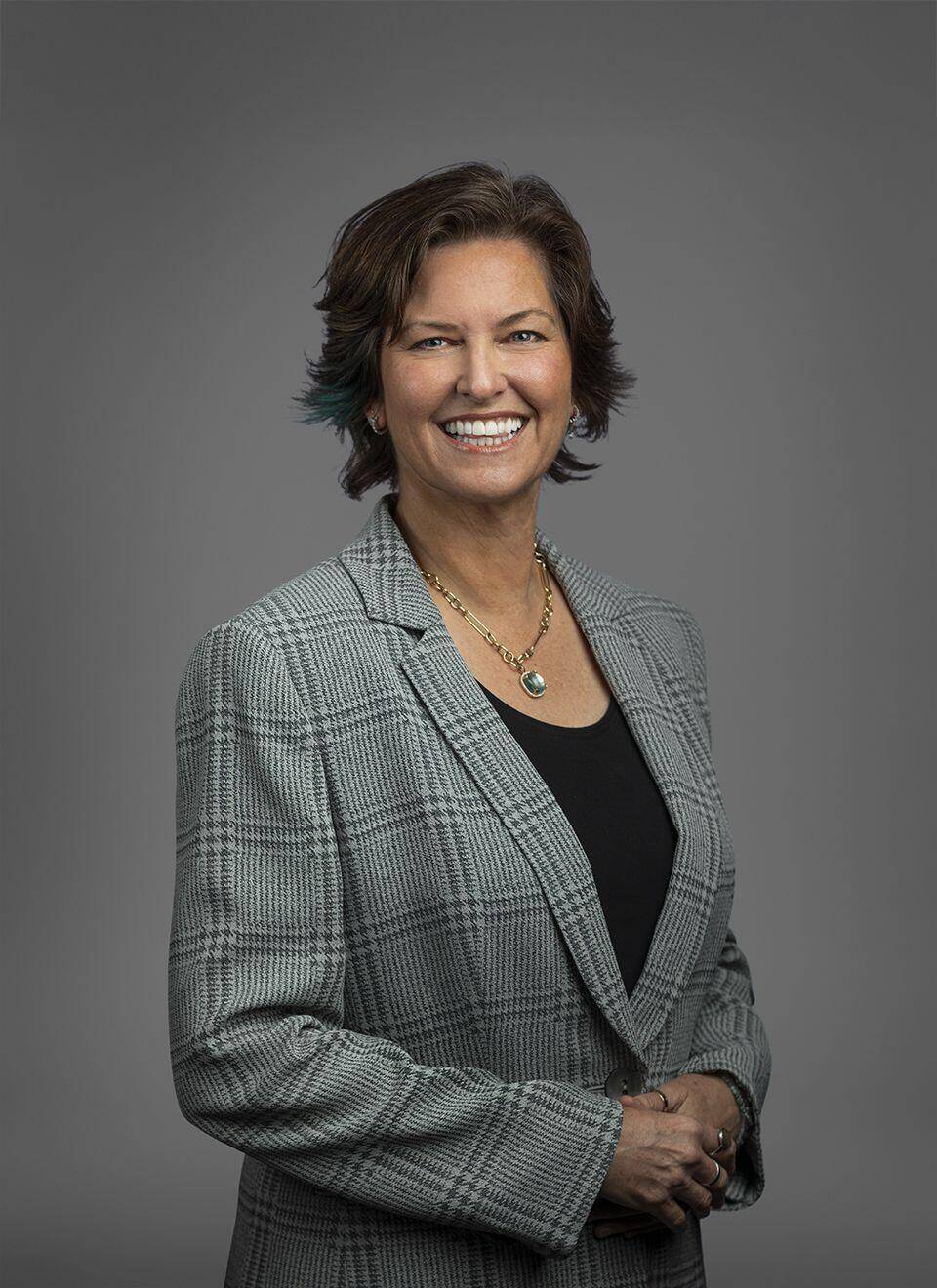
Communications Strategist, Chicago Bears
College of Business Administration BS ’18
Miguel Lemus
Rising Star Leadership Award
“Become the leader in your community that you wish you had growing up.”
Miguel Lemus tries to live by these words. Whether as youth group leader on Chicago’s southwest side, as a communications professional with the Chicago Bears or as a marketing student at UIC, Lemus has always tried to lead by helping people, especially the younger generation, see possibilities in their lives and in themselves. He does this because, for him, those possibilities weren’t always so clear.
The first-generation UIC alumnus immigrated from Guanajuato, Mexico, with his family when he was four years old. His parents stressed the importance of a good education; however, as the only English speaker in his house, he had to navigate a lot on his own. Lemus was also born partially deaf, a disability that challenged him to work twice as hard on his communication skills “just so I could keep up with people’s conversation.” Coupled with the lack of resources in Gage Park, “I didn’t have very much guidance or mentorship to show me what opportunities were out there,” Lemus says.
While in high school, an aimless Lemus almost turned to gangs for direction. Fortunately, a teacher saw his potential and steered him down a different path. He focused on his studies, joined extracurricular programs and decided to start two youth groups with friends to support other troubled teenagers.
“I knew I wasn’t the only one going through this,” Lemus says. “And I thought, ‘What’s a way that I can help give kids in my neighborhood hope for their future?’”
Warriors of Peace and Jeremiah Youth Organizations motivate local youth to build communication, leadership and teamwork skills by creating community events like dances, sports programs and anti-violence peace walks and by participating in community service, such as cleaning up the neighborhood and helping the homeless.
These transformative experiences led to a full scholarship from UIC, where Lemus found a passion for marketing and media relations. He worked as an on-air personality for UIC Radio, discussing social issues in the Latino community. Through UIC’s network, he connected with Univision, where he worked with other inspiring Latino professionals and leaders.
Today, Lemus is a communications strategist for the Chicago Bears. Becoming that leader for his community, the UIC alumnus started a program with the Bears to give students a chance to see what it is like to work in the sports industry. And he continues to mentor young people in the Latino community and individuals with disabilities.
“I'm here for a reason,” he says. “How can I create opportunity for the next generation? Because I know what it's like to be in their shoes.”
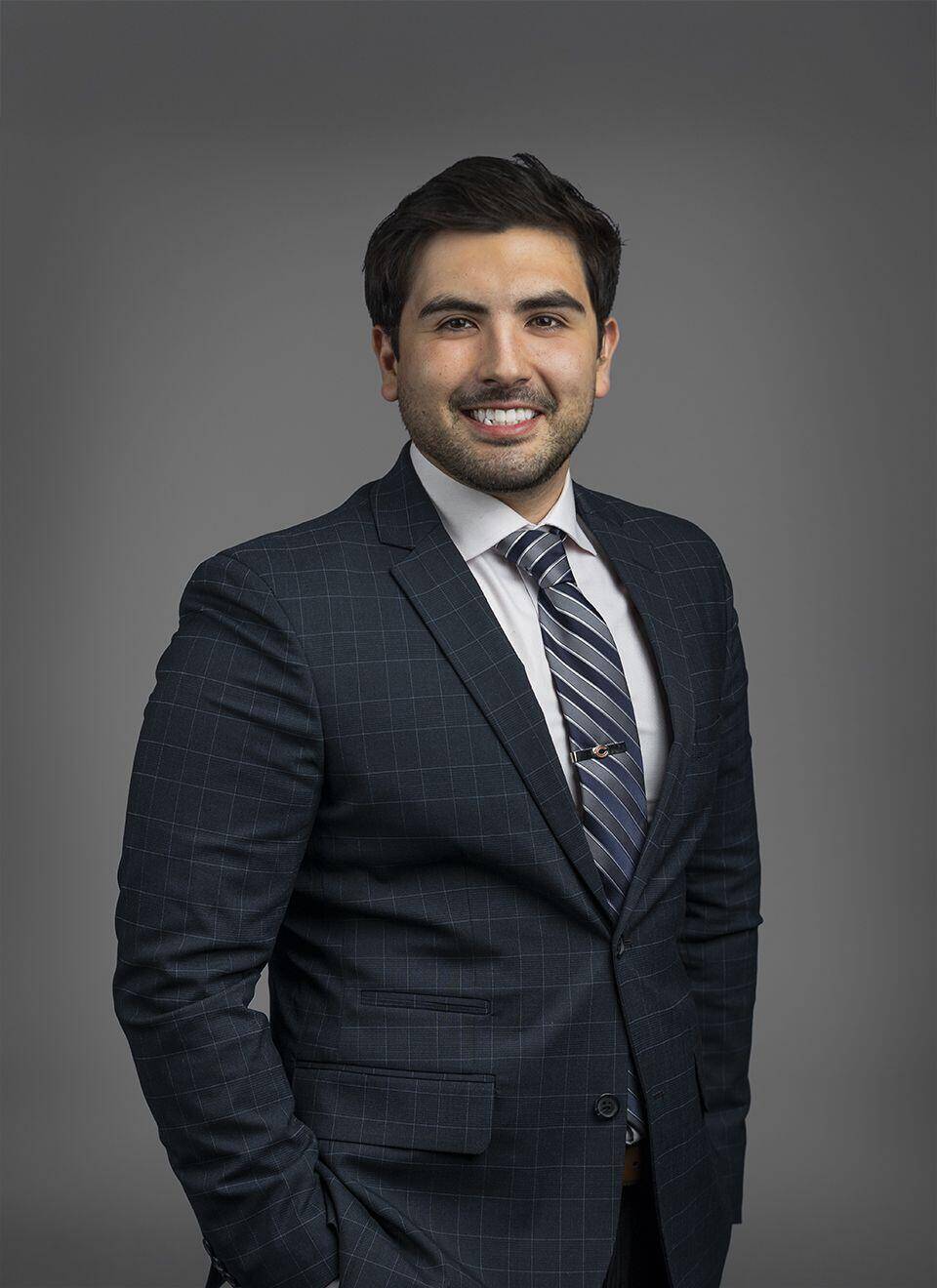
Chief Plan Officer, CountyCare Health Plan, Cook County Health
School of Public Health MPH/MBA ’16
Cristina Turino
Rising Star Leadership Award
Unsung heroes are everywhere in the field of health care. They are the under-the-radar individuals who orchestrate meaningful changes to the industry and tirelessly try to improve the system from within. They make sure health care not only works, but works for every person in every community in the best way possible. Cristina Turino is one of those difference makers.
In less than eight years, the UIC School of Public Health and Business Graduate School alumna has become a leader in community health care, rising from project analyst to chief plan officer for Cook County Health. During that time, she has significantly expanded health care access and health equity for the almost 415,000 people who are enrolled in CountyCare, the largest Medicaid health plan in Cook County owned by Cook County Health. She has led initiatives to collect more robust demographic data — race, ethnicity, gender identity, language, pronouns — so that the health plan can better understand and serve their Medicaid members.
“Without good data, you can’t address inequities,” Turino says. She helped develop the FoodCare program, which provides no-cost meals and nutrition information to tackle food insecurity. She also led CountyCare’s implementation to ensure that undocumented individuals have access to essential, quality health care services.
Turino’s passion for more inclusive health care was sparked by her grassroots work in health justice at a nonprofit organization early in her career. There she saw the need for systemic and structural change, which led her to UIC.
“I really wanted to work on the system-level issues to make our health care system better,” she says. “To listen to people and learn from them about what they need.” But systemic change to a system as complex and opaque as health care isn’t easy. It takes research, evidence, listening, problem-solving, teamwork and leadership to make significant changes.
Turino credits UIC with teaching her the skills to make such an impact. When CountyCare introduced a program to cover immigrant adults and seniors, one of the key decisions was whether to charge copayments and cost-sharing. Turino dug into the research on how revenue gains from cost-sharing are often offset by preventive care avoidance, causing an increased use of more expensive services, such as emergency room or inpatient care. Her research led to the decision to waive all out-of-pocket expenses, the only health plan in Illinois to do so.
“It was something I was really proud of,” she says. “And it was skills I gained from UIC — thinking through a complex idea, putting the evidence behind it, and coming to a decision that aligns with our mission for health equity.”
Accomplishments like these represent a huge shift toward more accessible and inclusive health care as well as a hope for a better future — and that is sure not to go unnoticed.
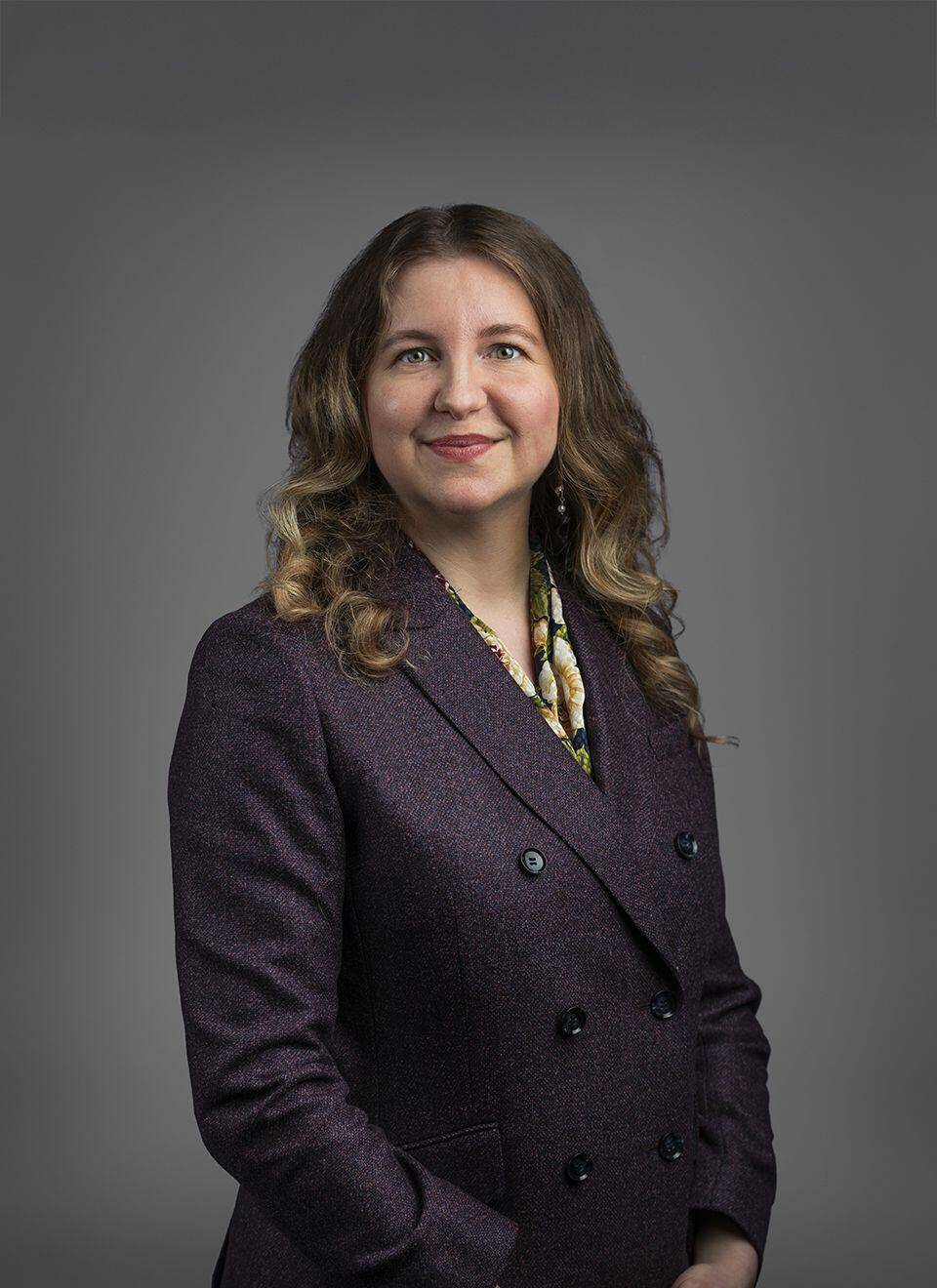
Chief Medical Officer (Retired), Cook County Health
College of Medicine MD ‘82
Dr. Claudia M. Fegan
Humanitarian Award
“I believe we could do so much better.”
The assessment might hold true of hospitals and medical centers, but it’s hard to find an area where Claudia M. Fegan MD didn’t give her all. From advocating for single-payer health care, to fostering a culture of excellence and accountability at Cook County Health as the system’s chief medical officer, Fegan’s community-oriented approach to problem solving and inclusivity are apparent.
“I was raised in activism and peace marches,” Fegan says of her upbringing. “I made a lot of strike signs when I was a kid. So I think that [impulse] came from our household. We were raised on social justice.”
She began her studies at the University of Illinois at Urbana-Champaign, but transferred to Fisk University in Nashville, Tennessee, to complete her bachelor’s. Asking questions in lectures large enough to fill movie theaters gave way to a more intimate environment, though not without tough love. On the first day of Comparative Vertebrate Anatomy, her professor told everyone who didn’t have their textbook to exit the classroom, leaving Fegan as the only student remaining.
Eying a return to Chicago, Fegan was admitted to every medical school she applied to in the city and chose UIC because of its affordability. What struck her about the program was the degree to which minority students looked out for one another.
Practicing in Hyde Park, Fegan joined Physicians for a National Health Program, which lobbies for nationalized health care. Her experience of seeing people struggle with medical bills caused her to become more active. She gave speeches on the topic and treated patients who couldn’t afford to pay.
“It just seemed like the next logical step” that she would go to Cook County Health, Fegan says, a public hospital that treats patients regardless of their ability to pay.
Early in her tenure, she walked into her first clinical chairs meeting as head of the health system to find herself the only Black person — and woman — in the room, so she made a point of mentoring a diverse group of physicians.
“If you look at the department chairs now, the majority of them are women and people of color,” she says. “And so it did make a change.”
Fegan also created the Serious Event Review Team, which meets once a week so that departments can discuss operations and put more safeguards in place for patients.
Fegan retired from Cook County at the end of 2024 with plans to “get into some good trouble,” to quote the late civil rights activist John Lewis.
“What I'm pleased about is that I found time to do the things that were important to me,” she says. “So not just to take care of patients, but to be a voice for my patients and to advocate for them.”
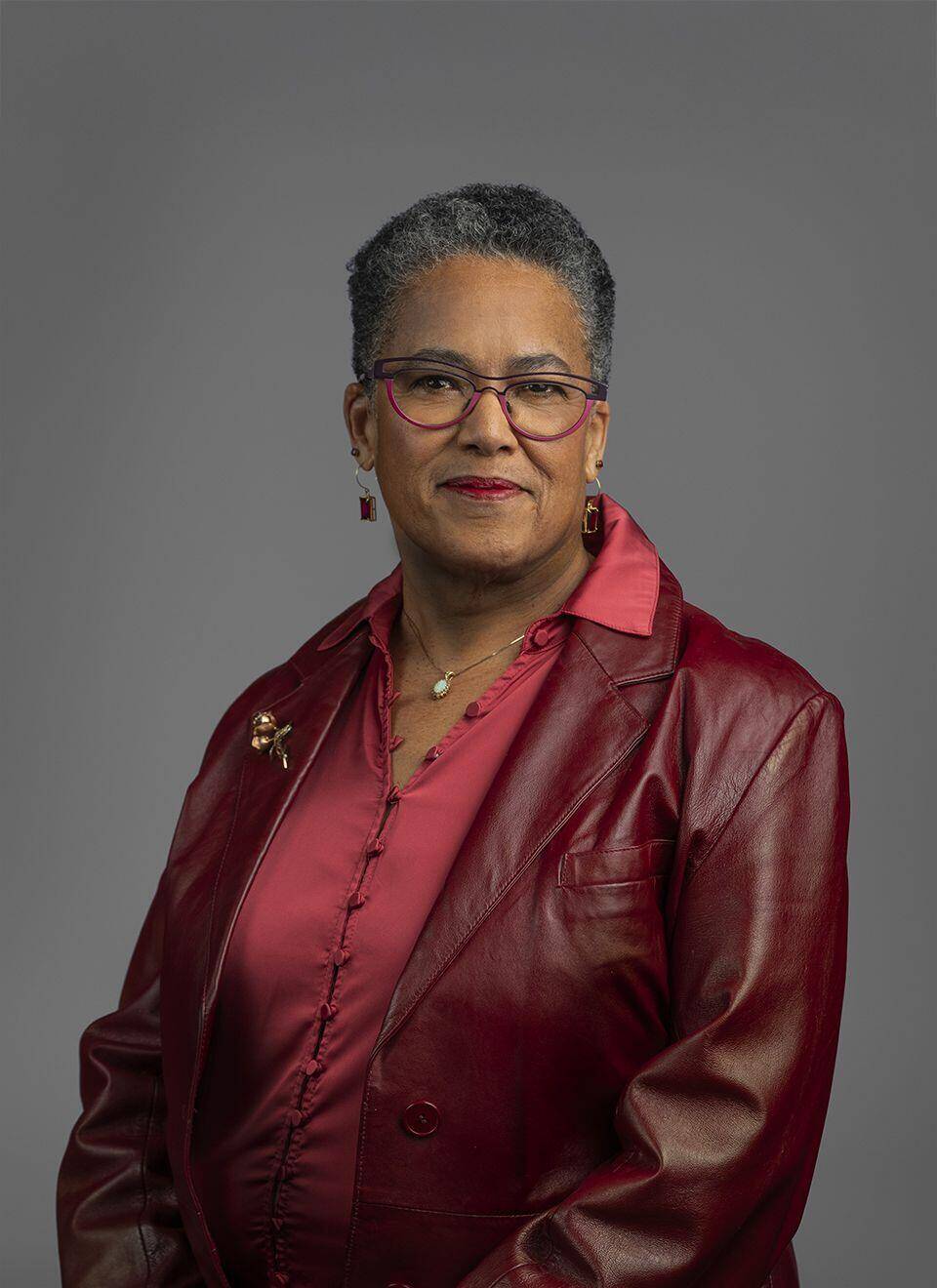
Dental Director, Heal Elgin
College of Dentistry DDS ’77
Dr. George Zehak
Humanitarian Award
Dr. George Zehak knows how important oral health is for overall health. He knows tooth decay is the number one chronic disease for children in the U.S., and one of the most common diseases in our country as a whole. And he knows what a difference a healthy mouth can make in someone’s life. However, Zehak also recognizes that many people do not have access to proper dental care. The reasons are many — money, distance, time — but the reality is there. So, for more than forty years as a practicing dentist, leader and educator, the UIC alum has set out to change that fact.
Zehak’s call to help those in need crystallized while he was a dental student in UIC College of Dentistry. He was a member of the first graduating class to have access to what was, in 1973, a brand-new building with state-of-the-art facilities. Zehak recalls a program introduced in his third year that encouraged students to provide free dental care in underserved neighborhoods around Chicago.
“I don’t think many schools were doing that back in 1976,” he says. “And it was so rewarding. Helping people and making their lives better…that’s really what life is all about.”
After graduating from UIC, Zehak continued that deep-seated desire to care with his own private practice as well as in his leadership roles with the Chicago Dental Society, the Illinois State Dental Society and the American Dental Association. Every day he advocated for more dentists and more dental clinics at local, state and national levels. As chair of the Chicago Dental Society Foundation, the UIC alumnus reviewed and approved grants for more community access to quality oral health care. He recalls feeling proud that the foundation helped triple the capacity for a pediatric dental clinic on Chicago’s West Side. The clinic could now provide services to 10,000 children a year.
“We just threw a piece of sand into Lake Michigan, because there’s really like 40,000 children in need in that location,” he admits. “The need is so great here in the U.S. and we have to inspire people to help.”
Zehak addresses that pressing need through his volunteer work with Heal Elgin. The pop-up clinic provides free dental care to disadvantaged communities, and Zehak notes that patients have driven more than six hours to access the care. He recruits dental students to volunteer at the clinic and regularly returns to UIC to share his experiences and inspire students to live a humanitarian life.
“All we can do is help each other and give back, and I definitely try to instill that in the next generation,” he says.
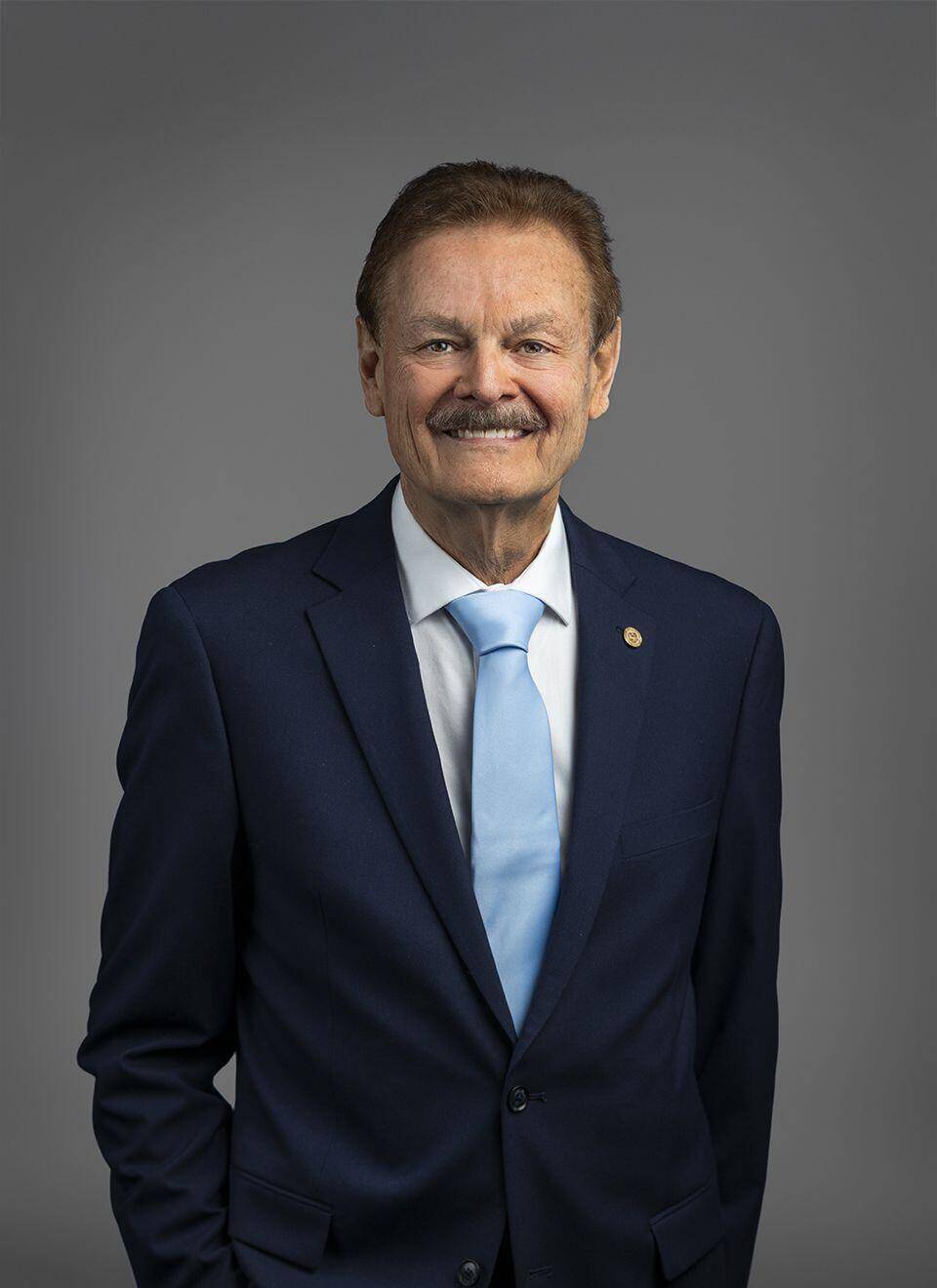
Medical Education Cultivator
College of Medicine Rockford MD ’82
Dr. Marygrace Elson
Distinguished Service Award
Dr. Marygrace Elson strongly believes that “to whom much has been given, much is expected.” Her service and philanthropy are deeply rooted in her appreciation for the countless opportunities that a University of Illinois College of Medicine education provided to her. That is why, over the course of her medical career, she has dedicated herself to mentoring and supporting those who may not have the same opportunities.
While pursuing her MD at the College of Medicine Rockford, Elson served as president of the Medical Student Council. Elected by her peers, she was responsible for coordinating student activities throughout the College of Medicine as well as acting as a liaison between students and medical school administration.
“I really learned how to be a representative of your group and how to advocate for others,” she said of the role. In recognition, she received the Alumni Association Leadership Award upon graduating in 1982.
For the next 40 years, the UICOM Rockford alum became a leader in obstetrics and gynecology — as a clinician twice recognized as one of “America’s Best Physicians;” a scholar who published 11 peer-review papers and 12 abstracts; a spokesperson who served as president of the Iowa Medical Society; and as an educator who directed the residency program at University of Iowa Hospitals and Clinics. All the while, Elson has mentored countless students and resident physicians pursuing a career in women’s health care, empowering them with her insights and encouragement.
“They’re going to make an impact; I really believe that,” she says.
Elson also believes that too many groups are underrepresented in medicine. And she knows that representation matters — for doctors and patients.
“From a social justice standpoint, there are inequities…and there’s a fair amount of research that suggests that patient outcomes are better when the provider can speak the patient’s language and is aware of the patient’s culture,” she says.
Elson established the Underrepresented in Medicine Student Research Program at UICOM Rockford. The endowed fund gives support to students from groups underrepresented in medicine to carry out research projects, providing them with $2,500 and mentorship to obtain research credentials that can be critical in their residency applications.
Elson hopes that her generosity inspires others to give back.
“I think folks want to invest in things they believe in,” she says. “When we think of philanthropy, a common perception is that we need to give gazillions of dollars to have any real impact. This program was established with a quite reachable gift, and has a tangible result — helping a student achieve a great residency match.”
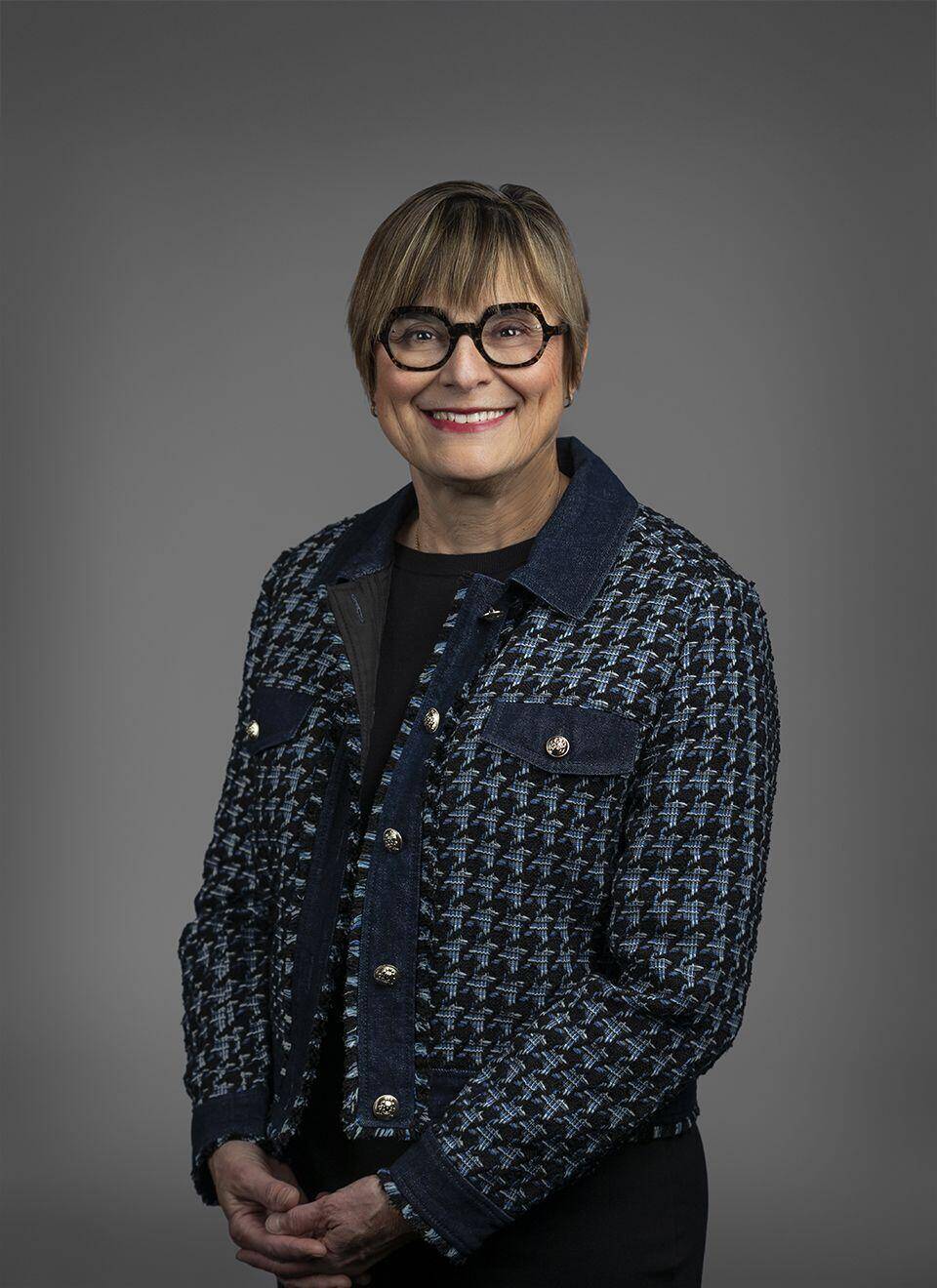
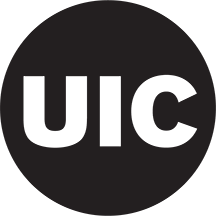

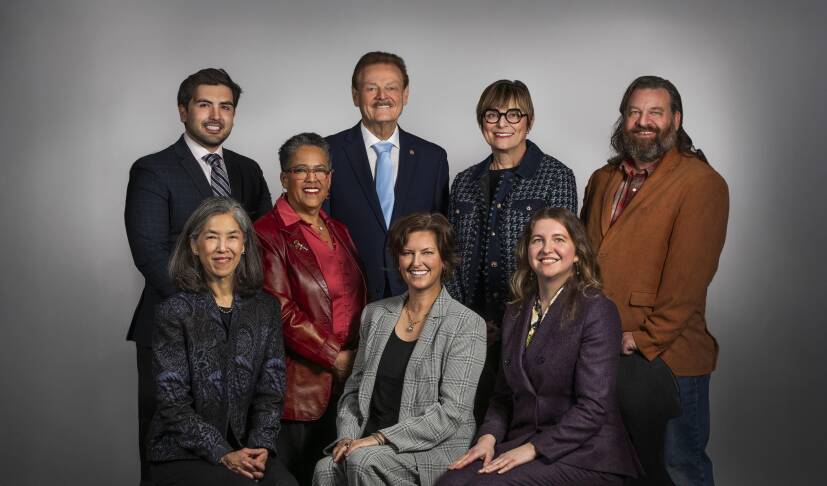
Each year, the University of Illinois Chicago Alumni Association celebrates our extraordinary alumni. These individuals have undoubtedly achieved success in their respective fields; more importantly, they have created opportunities and meaningful change in their cities and regions. Each of these alumni represents different disciplines — urban planning, public health, education, arts, medicine, communications, health care and dentistry — but what connects them is their dedication and drive to make healthier, more equitable and more inclusive communities. These humanitarians, achievers and rising stars embody their alma mater’s commitment to service and inspire all of us to be agents of social change.
2025 Alumni Awards
The
Change-Makers
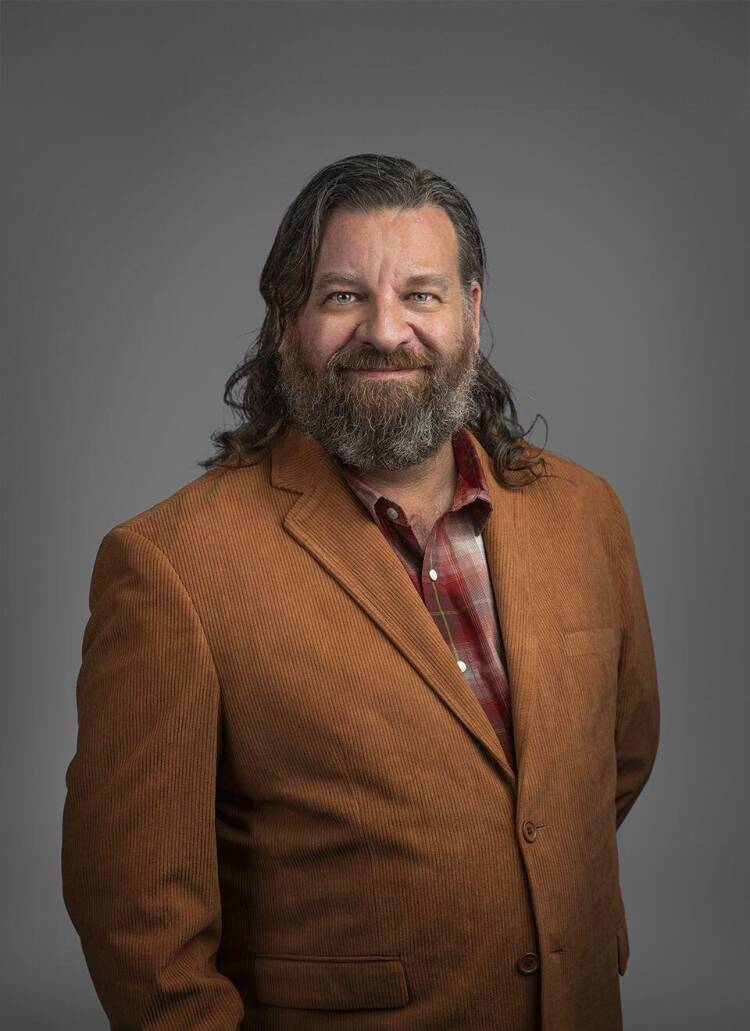
Alumni Achievement Award
For Josh Deth, the practices of brewing beer and urban planning intersect at building community.
Before he founded Revolution Brewing, Deth earned a master’s degree in urban planning and policy at UIC. Craft brewing was always his passion, but he also had a strong interest in community activism and advocacy work, namely around more connected, less car-centered neighborhoods. He joined the Master of Urban Planning and Policy program and worked with the late Janet Smith, a professor of urban and public policy, to revive an old proposal to turn three miles of abandoned train tracks into a public space that connected Chicago neighborhoods. Smith stressed the importance of directly involving neighbors and community members in any urban planning project.
“Janet was a great listener of direct constituents and what people want in their neighborhoods,” Deth says.
For his thesis project, Deth co-founded the Friends of the Bloomingdale Trail (FBT), a community-driven association that garnered neighborhood support for the new public greenway and grew to 1,000 members. The FBT held community meetings, centered residents’ voices during the design and development planning and organized clean-up days. Twenty years later, the 606 trail and parks network has become the backbone that connects the Logan Square, Humboldt Park and West Town communities, fostering recreation and connectivity on the northwest side.
Deth continued brewing beer and dreaming up other ways to bring together Chicagoans. While at UIC, he opened up the Handlebar restaurant, which became a hub for cycling activists and a community staple in Wicker Park. Then, in 2010, he built Revolution Brewing, which helped kickstart the Chicago craft beer movement.
“I used all my urban planning skills when opening that business,” Deth says. “And I was meeting a need because the community didn’t have enough choices with beer.”
Revolution’s recently closed brewpub in Logan Square spurred community development along Milwaukee Avenue, and today Revolution is the largest independent craft brewery in Illinois. As an entrepreneur, Deth uses his platform to advocate for local community groups and organizations. He donates the brewery space to host fundraising events for causes such as housing for the homeless, ecological preservation and bike advocacy; mentors upcoming brewers and promotes community-building through home brewing; and helps new small businesses find their footing in the city.
“To create space for community, it’s very important to keep open the pathways in,” Deth says. “Especially if you believe in welcoming people.”
Joshua Deth
Founder, Revolution Brewing
College of Urban and Public Policy MUPP ‘05
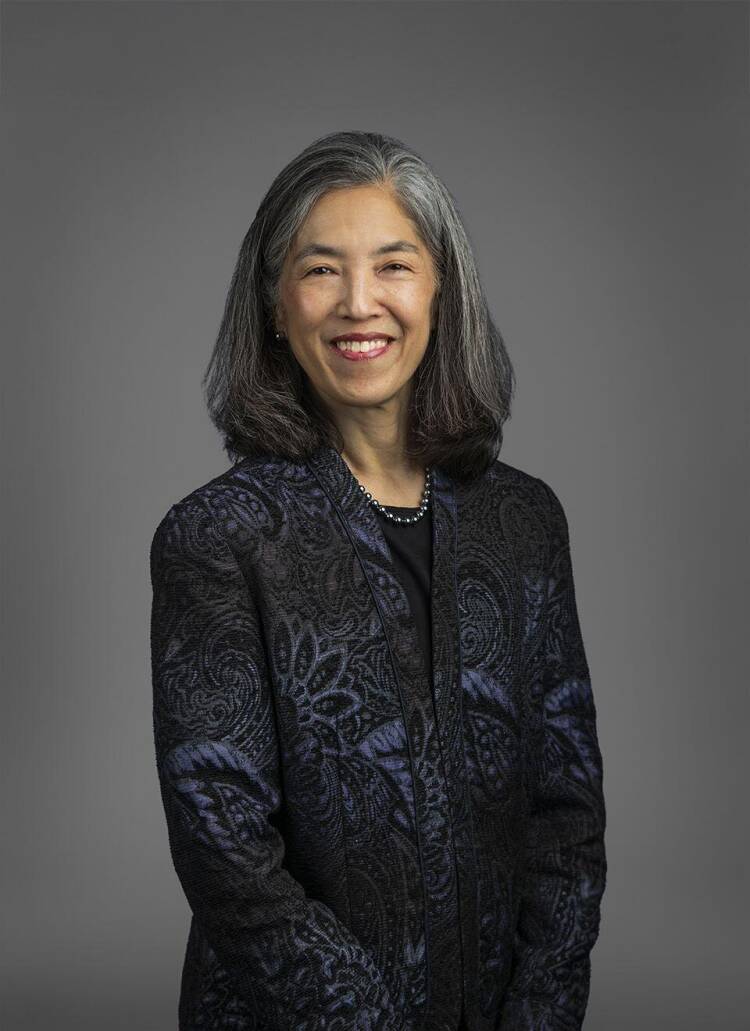
Alumni Achievement Award
Dr. Julie Morita
“Safety, feeling welcome, and opportunity…these are essential ingredients for health.”
For Dr. Julie Morita, these factors should exist in every person’s life — not as a privilege, but as a right.
Morita has worked for more than 30 years to dismantle social barriers to health. She was deeply influenced by the experience of her parents, who were detained in a Japanese American internment camp during World War II. She grew up with stories of unjust treatment and the state-sanctioned racism her parents and thousands of others endured. Her family history is one source of inspiration in her pursuit for health equity; another is her time at UIC.
As a student at the College of Medicine, Morita gained valuable exposure to the diverse communities around Chicago through her clinical rotations.
“The patient populations that we cared for were all people of color and generally people who lacked access to resources,” Morita recalls. “Like many American communities, Chicago is segregated in a way that provides abundant opportunities for some and barriers that make it harder to be healthy for others.”
After a stint as a pediatrician, Morita pivoted into public health — working on vaccine-preventable diseases at the Centers for Disease Control and Prevention and then joining the Chicago Department of Public Health (CDPH). She ended her 20-year career there as commissioner, overseeing public health for 2.7 million residents. During her tenure, Morita managed large-scale health responses to H1N1, Ebola and meningitis outbreaks; increased HPV vaccination rates among teenagers; led efforts to reduce youth access to tobacco and nicotine; doubled investment in opioid use prevention and treatment; addressed the racial gap in vaccination rates; and launched “Healthy Chicago 2.0,” a four-year plan focused on achieving health equity and eliminating systemic barriers to health.
The UIC alumna then moved into the nonprofit world, leading grantmaking at the Robert Wood Johnson Foundation for five years in its mission to make health a right. Today, Morita is the President and CEO of the Joyce Foundation, an organization that supports policies and other strategies that promote racial equity and economic mobility in the Great Lakes region. Her work there is a culmination of her decades-long dedication to creating healthier communities.
“We prioritize education, environment, democracy, culture, journalism, and gun violence prevention and justice reform,” she says. “There’s a direct connection from those issues to health and well-being — system-level changes in these areas will improve people’s health and well-being.”
President and CEO, Joyce Foundation
College of Medicine MD ’90
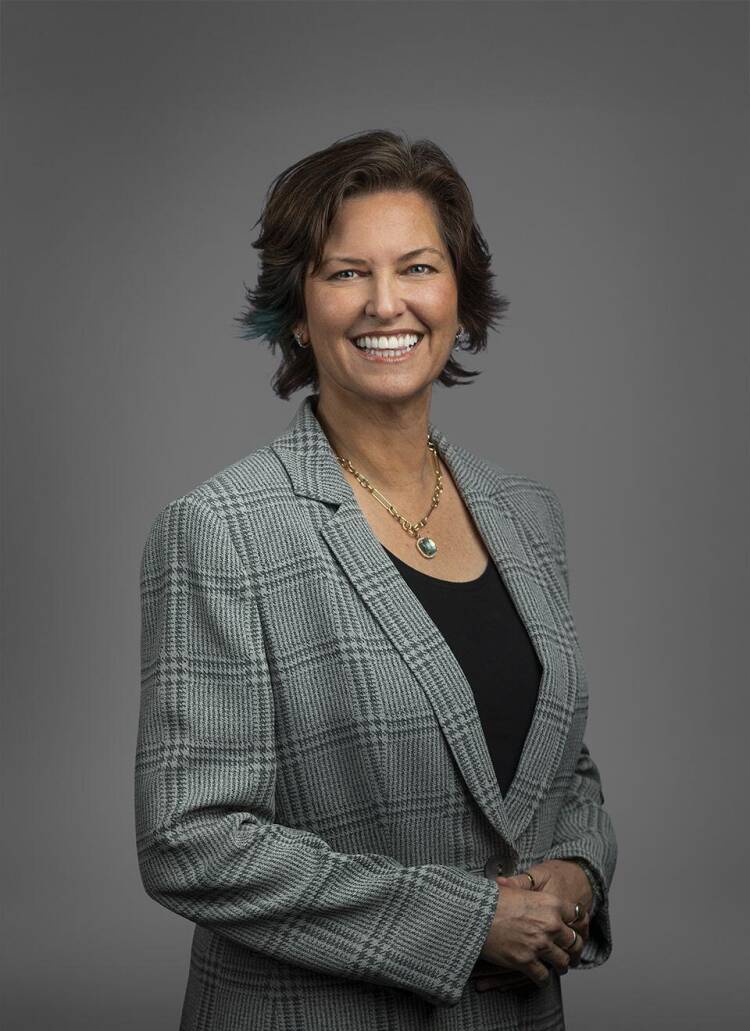
Alumni Achievement Award
Storytelling is at the core of Jen Rainin’s work. For the UIC alumna, stories matter — and whose stories are told matters even more. The plot to her story as a teacher, philanthropist, filmmaker and LGBTQ+ activist is giving voice to those who are not represented in the dominant narrative.
“My personal mission is to build visibility…and positive representation,” She says. “I want to eliminate the shame and injustice that comes from not being able to access knowledge.”
Rainin’s early career as a special education teacher and literacy specialist shaped her passion for storytelling. But the struggles she saw with young children learning how to read led her to UIC’s College of Education. While pursuing her PhD, she worked with the Center for Literacy at UIC, which provides family literacy and adult education services to Chicago’s South and West Side communities. This experience greatly contributed to Rainin’s dissertation research — a better understanding of how to prepare teachers to be more effective early literacy instructors and how to center parents, caregivers and community members in that education.
In the next chapter of her story, the UIC alumna stepped in as the head of the Kenneth Rainin Foundation after her father passed away. With a focus on arts, health and education, the Bay Area-based foundation has launched programs to strengthen early literacy in Oakland, California, and to support early childhood teachers, especially minority educators — providing children with the stories and storytellers that matter to them.
A filmmaker and proponent of the arts, Rainin has also invested in initiatives to uplift artists’ voices. Through the Community Arts Stabilization Trust, the foundation works to secure affordable spaces for artists in the Bay Area, and with the Rainin Filmmaking Grants in partnership with SF Film, the foundation supports independent feature films that address social justice issues.
“I really do see a strong through-line from my work giving young children and their families the ability to read stories, and the foundation work that ensures that educators and artists are set up to tell those stories that need to be told…to give voice to underrepresented groups,” she says.
In her own work as a filmmaker, Rainin champions stories about lesbian, bisexual, queer and transgender culture, bringing LGBTQ+ voices, achievements and struggles into awareness. The Curve Foundation, which Rainin founded with her wife, supports journalists, produces dozens of intersectional and multi-generational events, and is the U.S. host for Lesbian Visibility Week, elevating and celebrating lesbian culture across the country each April.
At a time when LGBTQ+ rights are targeted and diversity, equity and inclusion is being rolled back, Rainin’s storytelling is critically important and demonstrates an embodiment of UIC’s mission to inspire social change.
Jennifer Rainin
CEO, Kenneth Rainin Foundation
College of Education PhD ’02
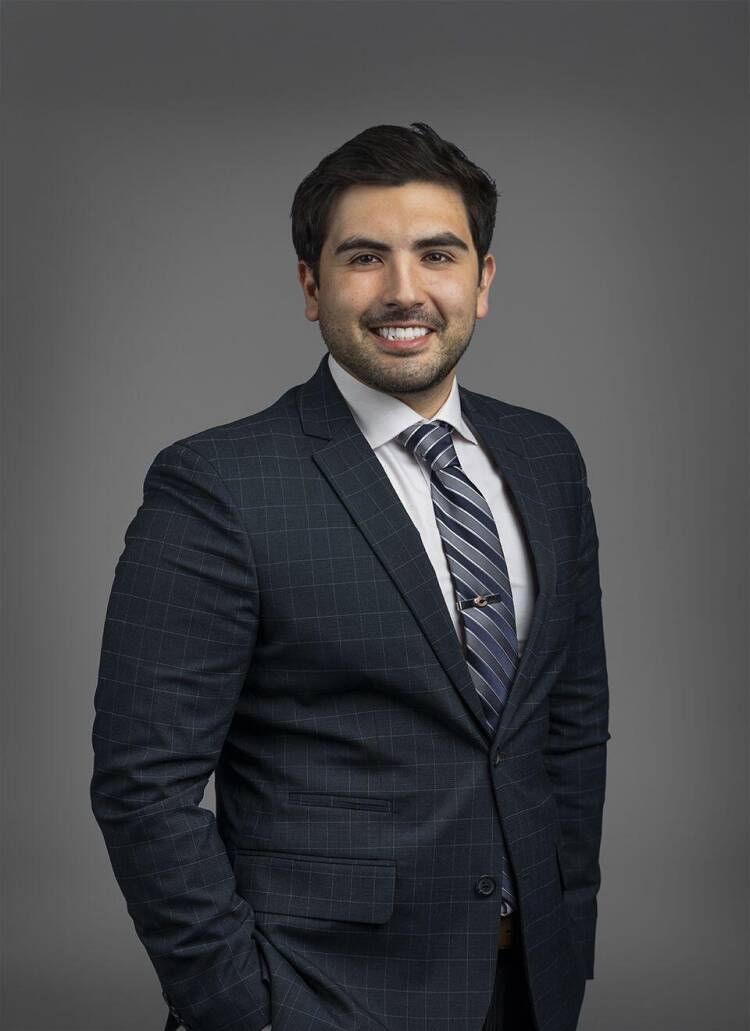
Rising Star Leadership Award
Communications Strategist, Chicago Bears
College of Business Administration BS ’18
Miguel Lemus
“Become the leader in your community that you wish you had growing up.”
Miguel Lemus tries to live by these words. Whether as youth group leader on Chicago’s southwest side, as a communications professional with the Chicago Bears or as a marketing student at UIC, Lemus has always tried to lead by helping people, especially the younger generation, see possibilities in their lives and in themselves. He does this because, for him, those possibilities weren’t always so clear.
The first-generation UIC alumnus immigrated from Guanajuato, Mexico, with his family when he was four years old. His parents stressed the importance of a good education; however, as the only English speaker in his house, he had to navigate a lot on his own. Lemus was also born partially deaf, a disability that challenged him to work twice as hard on his communication skills “just so I could keep up with people’s conversation.” Coupled with the lack of resources in Gage Park, “I didn’t have very much guidance or mentorship to show me what opportunities were out there,” Lemus says.
While in high school, an aimless Lemus almost turned to gangs for direction. Fortunately, a teacher saw his potential and steered him down a different path. He focused on his studies, joined extracurricular programs and decided to start two youth groups with friends to support other troubled teenagers.
“I knew I wasn’t the only one going through this,” Lemus says. “And I thought, ‘What’s a way that I can help give kids in my neighborhood hope for their future?’”
Warriors of Peace and Jeremiah Youth Organizations motivate local youth to build communication, leadership and teamwork skills by creating community events like dances, sports programs and anti-violence peace walks and by participating in community service, such as cleaning up the neighborhood and helping the homeless.
These transformative experiences led to a full scholarship from UIC, where Lemus found a passion for marketing and media relations. He worked as an on-air personality for UIC Radio, discussing social issues in the Latino community. Through UIC’s network, he connected with Univision, where he worked with other inspiring Latino professionals and leaders.
Today, Lemus is a communications strategist for the Chicago Bears. Becoming that leader for his community, the UIC alumnus started a program with the Bears to give students a chance to see what it is like to work in the sports industry. And he continues to mentor young people in the Latino community and individuals with disabilities.
“I'm here for a reason,” he says. “How can I create opportunity for the next generation? Because I know what it's like to be in their shoes.”
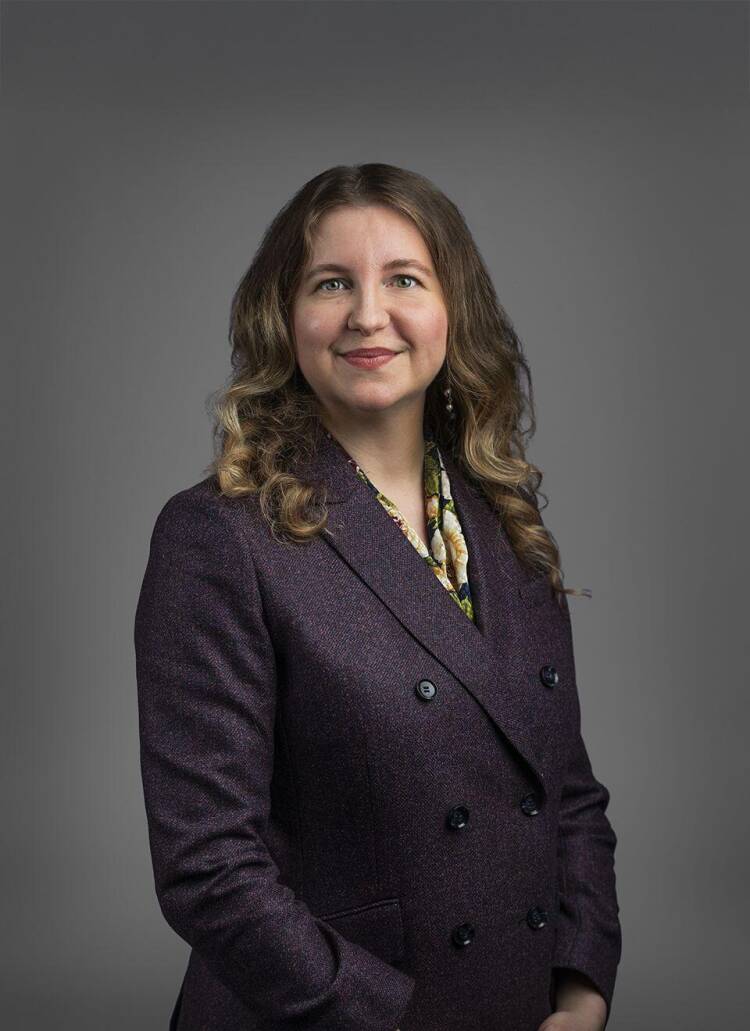
Rising Star Leadership Award
Chief Plan Officer, CountyCare Health Plan, Cook County Health
School of Public Health MPH/MBA ’16
Cristina Turino
Unsung heroes are everywhere in the field of health care. They are the under-the-radar individuals who orchestrate meaningful changes to the industry and tirelessly try to improve the system from within. They make sure health care not only works, but works for every person in every community in the best way possible. Cristina Turino is one of those difference makers.
In less than eight years, the UIC School of Public Health and Business Graduate School alumna has become a leader in community health care, rising from project analyst to chief plan officer for Cook County Health. During that time, she has significantly expanded health care access and health equity for the almost 415,000 people who are enrolled in CountyCare, the largest Medicaid health plan in Cook County owned by Cook County Health. She has led initiatives to collect more robust demographic data — race, ethnicity, gender identity, language, pronouns — so that the health plan can better understand and serve their Medicaid members.
“Without good data, you can’t address inequities,” Turino says. She helped develop the FoodCare program, which provides no-cost meals and nutrition information to tackle food insecurity. She also led CountyCare’s implementation to ensure that undocumented individuals have access to essential, quality health care services.
Turino’s passion for more inclusive health care was sparked by her grassroots work in health justice at a nonprofit organization early in her career. There she saw the need for systemic and structural change, which led her to UIC.
“I really wanted to work on the system-level issues to make our health care system better,” she says. “To listen to people and learn from them about what they need.” But systemic change to a system as complex and opaque as health care isn’t easy. It takes research, evidence, listening, problem-solving, teamwork and leadership to make significant changes.
Turino credits UIC with teaching her the skills to make such an impact. When CountyCare introduced a program to cover immigrant adults and seniors, one of the key decisions was whether to charge copayments and cost-sharing. Turino dug into the research on how revenue gains from cost-sharing are often offset by preventive care avoidance, causing an increased use of more expensive services, such as emergency room or inpatient care. Her research led to the decision to waive all out-of-pocket expenses, the only health plan in Illinois to do so.
“It was something I was really proud of,” she says. “And it was skills I gained from UIC — thinking through a complex idea, putting the evidence behind it, and coming to a decision that aligns with our mission for health equity.”
Accomplishments like these represent a huge shift toward more accessible and inclusive health care as well as a hope for a better future — and that is sure not to go unnoticed.
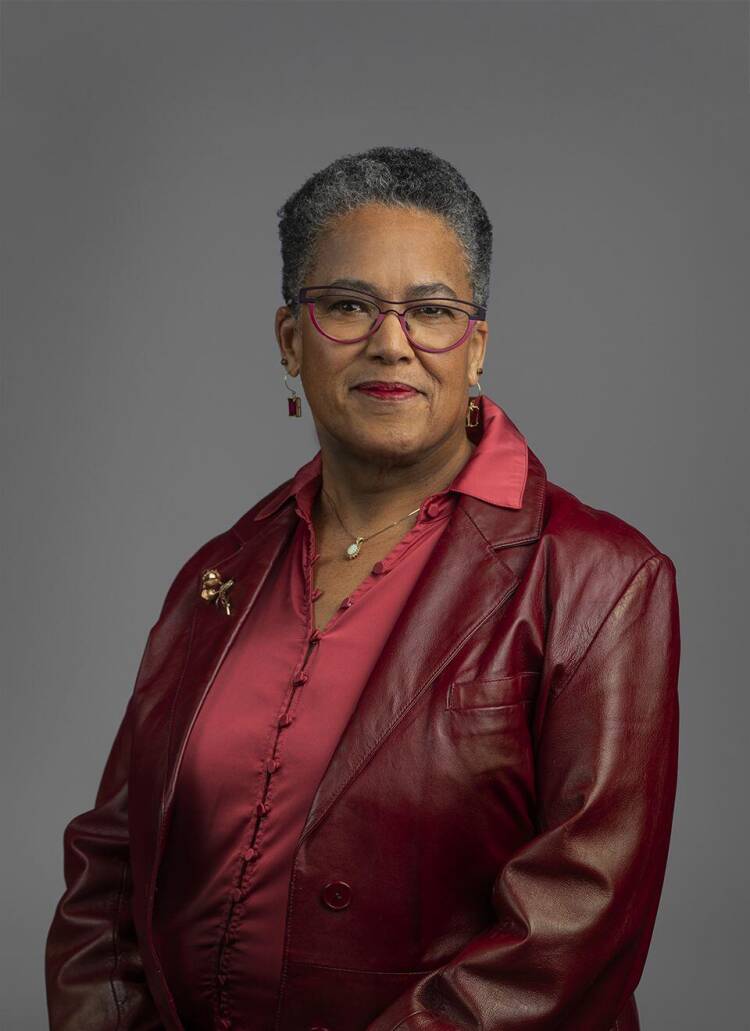
Humanitarian Award
“I believe we could do so much better.”
The assessment might hold true of hospitals and medical centers, but it’s hard to find an area where Claudia M. Fegan MD didn’t give her all. From advocating for single-payer health care, to fostering a culture of excellence and accountability at Cook County Health as the system’s chief medical officer, Fegan’s community-oriented approach to problem solving and inclusivity are apparent.
“I was raised in activism and peace marches,” Fegan says of her upbringing. “I made a lot of strike signs when I was a kid. So I think that [impulse] came from our household. We were raised on social justice.”
She began her studies at the University of Illinois at Urbana-Champaign, but transferred to Fisk University in Nashville, Tennessee, to complete her bachelor’s. Asking questions in lectures large enough to fill movie theaters gave way to a more intimate environment, though not without tough love. On the first day of Comparative Vertebrate Anatomy, her professor told everyone who didn’t have their textbook to exit the classroom, leaving Fegan as the only student remaining.
Eying a return to Chicago, Fegan was admitted to every medical school she applied to in the city and chose UIC because of its affordability. What struck her about the program was the degree to which minority students looked out for one another.
Practicing in Hyde Park, Fegan joined Physicians for a National Health Program, which lobbies for nationalized health care. Her experience of seeing people struggle with medical bills caused her to become more active. She gave speeches on the topic and treated patients who couldn’t afford to pay.
“It just seemed like the next logical step” that she would go to Cook County Health, Fegan says, a public hospital that treats patients regardless of their ability to pay.
Early in her tenure, she walked into her first clinical chairs meeting as head of the health system to find herself the only Black person — and woman — in the room, so she made a point of mentoring a diverse group of physicians.
“If you look at the department chairs now, the majority of them are women and people of color,” she says. “And so it did make a change.”
Fegan also created the Serious Event Review Team, which meets once a week so that departments can discuss operations and put more safeguards in place for patients.
Fegan retired from Cook County at the end of 2024 with plans to “get into some good trouble,” to quote the late civil rights activist John Lewis.
“What I'm pleased about is that I found time to do the things that were important to me,” she says. “So not just to take care of patients, but to be a voice for my patients and to advocate for them.”
Dr. Claudia M. Fegan
Chief Medical Officer (Retired), Cook County Health
College of Medicine MD ‘82
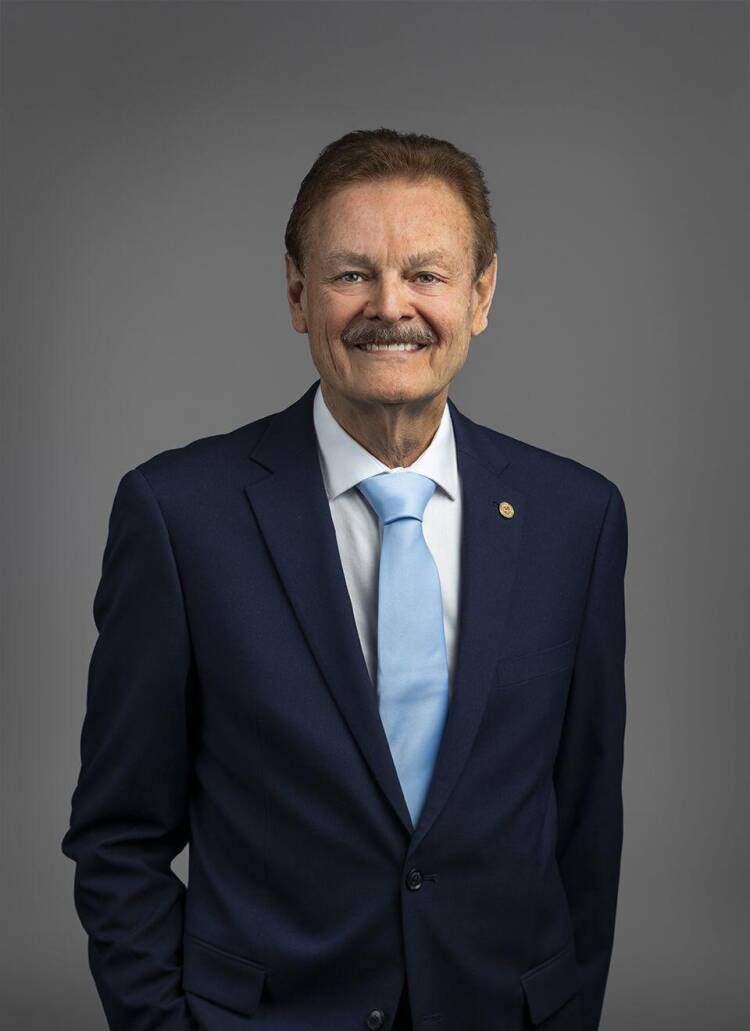
Humanitarian Award
Dr. George Zehak knows how important oral health is for overall health. He knows tooth decay is the number one chronic disease for children in the U.S., and one of the most common diseases in our country as a whole. And he knows what a difference a healthy mouth can make in someone’s life. However, Zehak also recognizes that many people do not have access to proper dental care. The reasons are many — money, distance, time — but the reality is there. So, for more than forty years as a practicing dentist, leader and educator, the UIC alum has set out to change that fact.
Zehak’s call to help those in need crystallized while he was a dental student in UIC College of Dentistry. He was a member of the first graduating class to have access to what was, in 1973, a brand-new building with state-of-the-art facilities. Zehak recalls a program introduced in his third year that encouraged students to provide free dental care in underserved neighborhoods around Chicago.
“I don’t think many schools were doing that back in 1976,” he says. “And it was so rewarding. Helping people and making their lives better…that’s really what life is all about.”
After graduating from UIC, Zehak continued that deep-seated desire to care with his own private practice as well as in his leadership roles with the Chicago Dental Society, the Illinois State Dental Society and the American Dental Association. Every day he advocated for more dentists and more dental clinics at local, state and national levels. As chair of the Chicago Dental Society Foundation, the UIC alumnus reviewed and approved grants for more community access to quality oral health care. He recalls feeling proud that the foundation helped triple the capacity for a pediatric dental clinic on Chicago’s West Side. The clinic could now provide services to 10,000 children a year.
“We just threw a piece of sand into Lake Michigan, because there’s really like 40,000 children in need in that location,” he admits. “The need is so great here in the U.S. and we have to inspire people to help.”
Zehak addresses that pressing need through his volunteer work with Heal Elgin. The pop-up clinic provides free dental care to disadvantaged communities, and Zehak notes that patients have driven more than six hours to access the care. He recruits dental students to volunteer at the clinic and regularly returns to UIC to share his experiences and inspire students to live a humanitarian life.
“All we can do is help each other and give back, and I definitely try to instill that in the next generation,” he says.
Dr. George Zehak
Dental Director, Heal Elgin
College of Dentistry DDS ’77
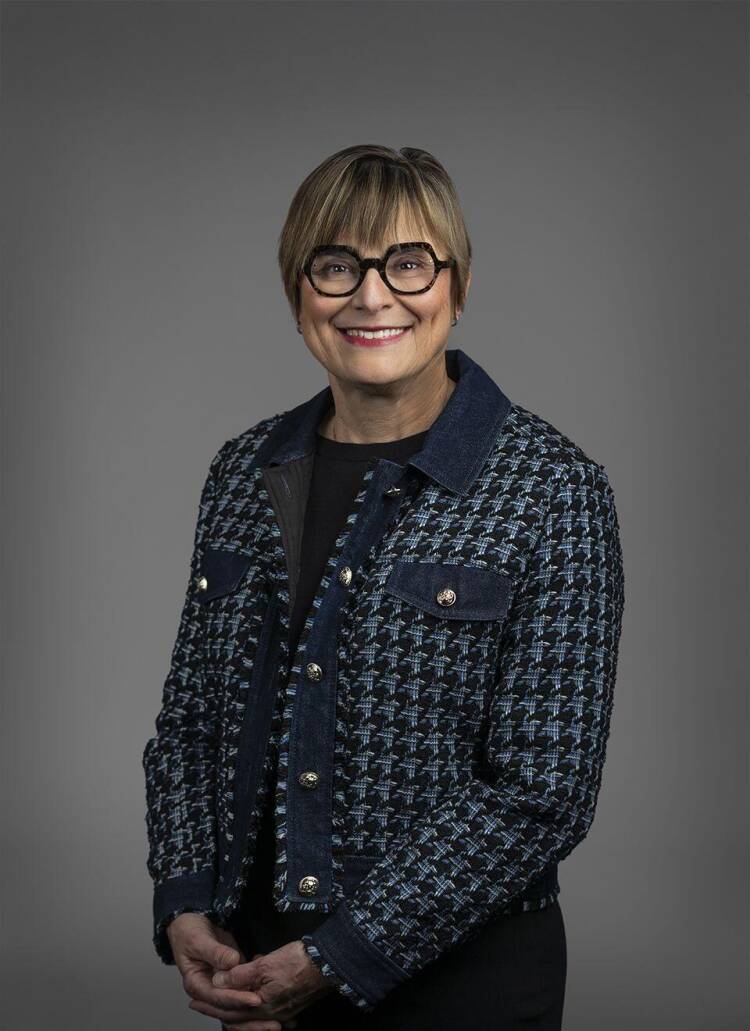
Distinguished Service Award
Medical Education Cultivator
College of Medicine Rockford MD ’82
Dr. Marygrace Elson
Dr. Marygrace Elson strongly believes that “to whom much has been given, much is expected.” Her service and philanthropy are deeply rooted in her appreciation for the countless opportunities that a University of Illinois College of Medicine education provided to her. That is why, over the course of her medical career, she has dedicated herself to mentoring and supporting those who may not have the same opportunities.
While pursuing her MD at the College of Medicine Rockford, Elson served as president of the Medical Student Council. Elected by her peers, she was responsible for coordinating student activities throughout the College of Medicine as well as acting as a liaison between students and medical school administration.
“I really learned how to be a representative of your group and how to advocate for others,” she said of the role. In recognition, she received the Alumni Association Leadership Award upon graduating in 1982.
For the next 40 years, the UICOM Rockford alum became a leader in obstetrics and gynecology — as a clinician twice recognized as one of “America’s Best Physicians;” a scholar who published 11 peer-review papers and 12 abstracts; a spokesperson who served as president of the Iowa Medical Society; and as an educator who directed the residency program at University of Iowa Hospitals and Clinics. All the while, Elson has mentored countless students and resident physicians pursuing a career in women’s health care, empowering them with her insights and encouragement.
“They’re going to make an impact; I really believe that,” she says.
Elson also believes that too many groups are underrepresented in medicine. And she knows that representation matters — for doctors and patients.
“From a social justice standpoint, there are inequities…and there’s a fair amount of research that suggests that patient outcomes are better when the provider can speak the patient’s language and is aware of the patient’s culture,” she says.
Elson established the Underrepresented in Medicine Student Research Program at UICOM Rockford. The endowed fund gives support to students from groups underrepresented in medicine to carry out research projects, providing them with $2,500 and mentorship to obtain research credentials that can be critical in their residency applications.
Elson hopes that her generosity inspires others to give back.
“I think folks want to invest in things they believe in,” she says. “When we think of philanthropy, a common perception is that we need to give gazillions of dollars to have any real impact. This program was established with a quite reachable gift, and has a tangible result — helping a student achieve a great residency match.”



